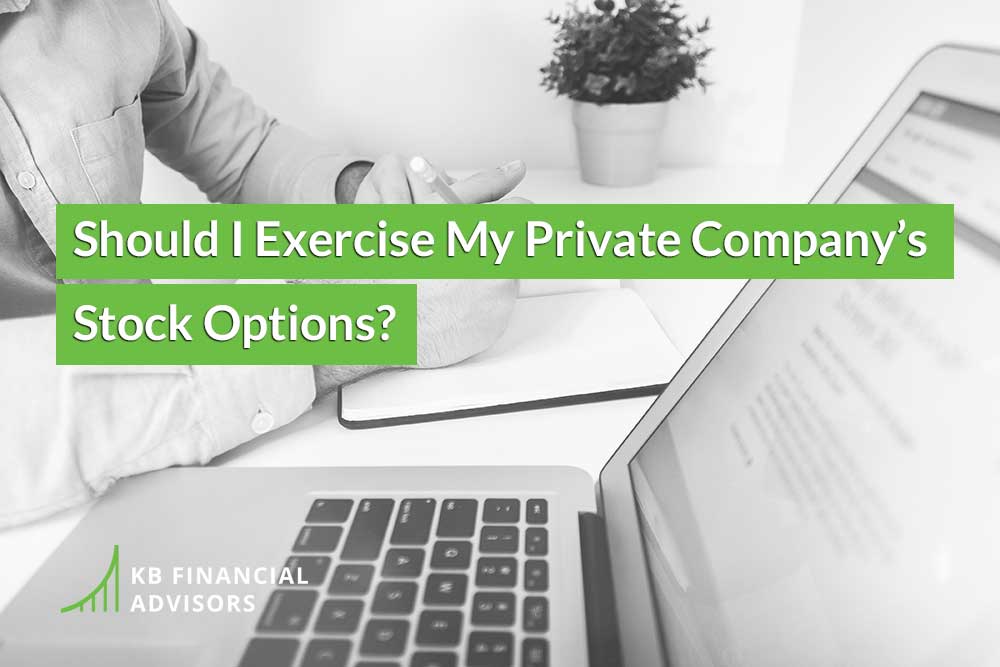Getting more stock options from your employer is always a good thing. After all, if you’re giving your all to help grow a company, shouldn’t you be rewarded when the massive success hits? I’ll always be a fan of my clients having as many stock options available as possible, but the truth is, in private companies, they’re a little risky. You buy them with money that you don’t get to see again, and you essentially handcuff yourself to these shares until the IPO happens. (If the IPO happens. The company could tank & you’d lose everything.) Here is how to answer: when should I exercise my private company stock options?
Psst… if you prefer to watch me teach this instead of reading the post below, here’s a video:
Risk of Private Company Stock Options: IPOs are Never Guaranteed
Even if you think your company will go public soon, it might not. Most of us thought Uber would IPO around 2014, but it didn’t do so until five years later. That’s five years of potential career development (& salary increases) you might have left on the table.
On the other hand, if you stick with a company like Uber that you help build to the point of IPO, that’s almost more valuable than having an Ivy League university on your resume.
No matter which way you cut it, there are all kinds of complicated trade-offs and risks when it comes to stock options in a private company.
In this article, I’m going to walk you through the risks of private company stock options, so you can decide what to do in your current situation. (And whether or not an investment in your company’s stock options are worth it.)
When Should I Exercise My Private Company Stock Options: The Three Primary Risks
When it comes to private company stock options, there are three major risks:

- Cost risk
- Investment risk
- Career risk
1. The Cost Risk of Private Company Stock Options
Any time you make an investment in stock, it’s money you give up now that you could spend on something else.
I had a conversation with one of my clients about this, and she said, “Last year, we bought a house. We didn’t have any money left in our bank, but we had a place to sleep. This year, we exercised our stock options. We didn’t have money left in the bank, but we don’t have anything to show for it.”
And that’s the point: any money you spend buying stock options, you could have spent on a house, a vacation, or a whole week’s worth of swanky, hot dates.
Not to mention, when you exercise stock options, it not only costs money to exercise them, but you also have to pay taxes on them. And that tax money is a total loss until the company goes public, because since the company is private, you can’t even sell those options if you want to. (Which can be a troublesome scenario if the company starts tanking.)
2. Investment Risk
Beyond the risk of giving up your money, buying shares in your private company means you’re taking a risk as an investor, and you need to make sure the risk is worth it.
Yes, every investment comes with risk built in, but not all investment risks are created equal. One thing I like to tell my clients is to consider whether or not they think their company’s shares will out-perform shares from a Total Stock Market fund. No, they’re not the same thing. But it’s your money, so there’s nothing wrong with doing an apples vs. oranges comparison.
You need to believe that your company will out-perform the stock market, without a doubt, because an investment in your company is riskier than investing in the stock market.
If you buy shares in your company, you’ve got unlimited positive potential. It could become like Apple, have a super-high valuation, and make you rich beyond your wildest dreams. But, the company could go downhill, and the shares could get to a $0.00 value before you’re ever allowed to sell them… meaning you’ll lose all your money.
With the stock market, on the other hand, it is possible that you’d lose everything, but it’s highly unlikely. The downside is that there usually isn’t the potential to make massive amounts of money from shares purchased in a total market fund.
If you’ve compared apples (your private company stock) to oranges (the stock market as a whole), and still decided to go with apples, then it’s time to compare apples to apples… your company vs. another startup.
If you think your company is the clear winner, that’s great. But if not, it may be worth finding ways to invest in that other startup instead… even if it means quitting & finding a new job.
3. Career Risk
Career risk is a huge one when it comes to investing in stock options in a pre-IPO company. And while most people might think number-crunching is more important than career growth when it comes to growing wealth… these two actually go hand-in-hand.
Because the thing is, a lot of companies don’t go public when we expect them to. Companies like Uber, AirBNB, and Pinterest are huge private companies that all passed their 10-year anniversary prior to an IPO. Uber and Pinterest went public in 2018 and AirBNB in 2020. The only thing is, a lot of people were expecting these companies to go public around 2014 or 2015.
But let’s say you were an employee of AirBNB in 2014. You had a ton of stock options, and your price to buy in was way less than the market value. It was a great deal, for sure, but you got offered another job elsewhere. This new job would be a great promotion, and would pay you $150,000 more per year.
Now, five years later, you still wouldn’t have gained anything from any stock options you exercised (because the IPO hasn’t happened yet). But, if you took the other job, you’d have earned $750,000 more in straight cash, with no associated risk that inherently comes with banking on stock option investments.
Plus, if you go ahead and take a $150,000 increase in income now, and you increase your earnings 5% per year for the next 25 years, that’s an additional $7,159,065 going into your bank than you would have gotten if you stayed in your position at AirBNB.
If you’ve saved 50% of every raise and invested it in an 8% return fund, that would be a $4,610,640 portfolio off your additional income alone.
So not only do you get to advance your career path more quickly, but you also get to advance your wealth-building plans in significant ways. If you stayed in your old position, holding out for an IPO that still hasn’t happened, you wouldn’t be able to do this much this quickly. (And while I used a super-successful company like AirBNB as my example, it’s also important to note that most companies aren’t a runaway success like AirBNB is.)
How to Know if Private Company Stock Options Are Worth the Risk
The only way to get a true grasp on when should I exercise my private company stock options is to run the numbers.
And, yes, there are A LOT of numbers to run:
The numbers of investing what you think is a good amount in some of your private company stock options.
The numbers of not investing and instead putting the money in another form of investment. The numbers of comparing those different investment options to one another.
The numbers of looking for a job elsewhere, potentially at a company that’s already gone public.
But there’s also the non-numerical pros and cons to consider, like potential resume value, and whether the cost of that is worth the money and returns you could make on investments elsewhere.
No one has a crystal ball to see into the future to know if your company will be the “it” one or not. But at KB Financial Advisors, we have calculators that tell us the future when it comes to your money and investment risks.
Book a call with one of us to talk about your private stock options, and to start figuring out the best move for you.



